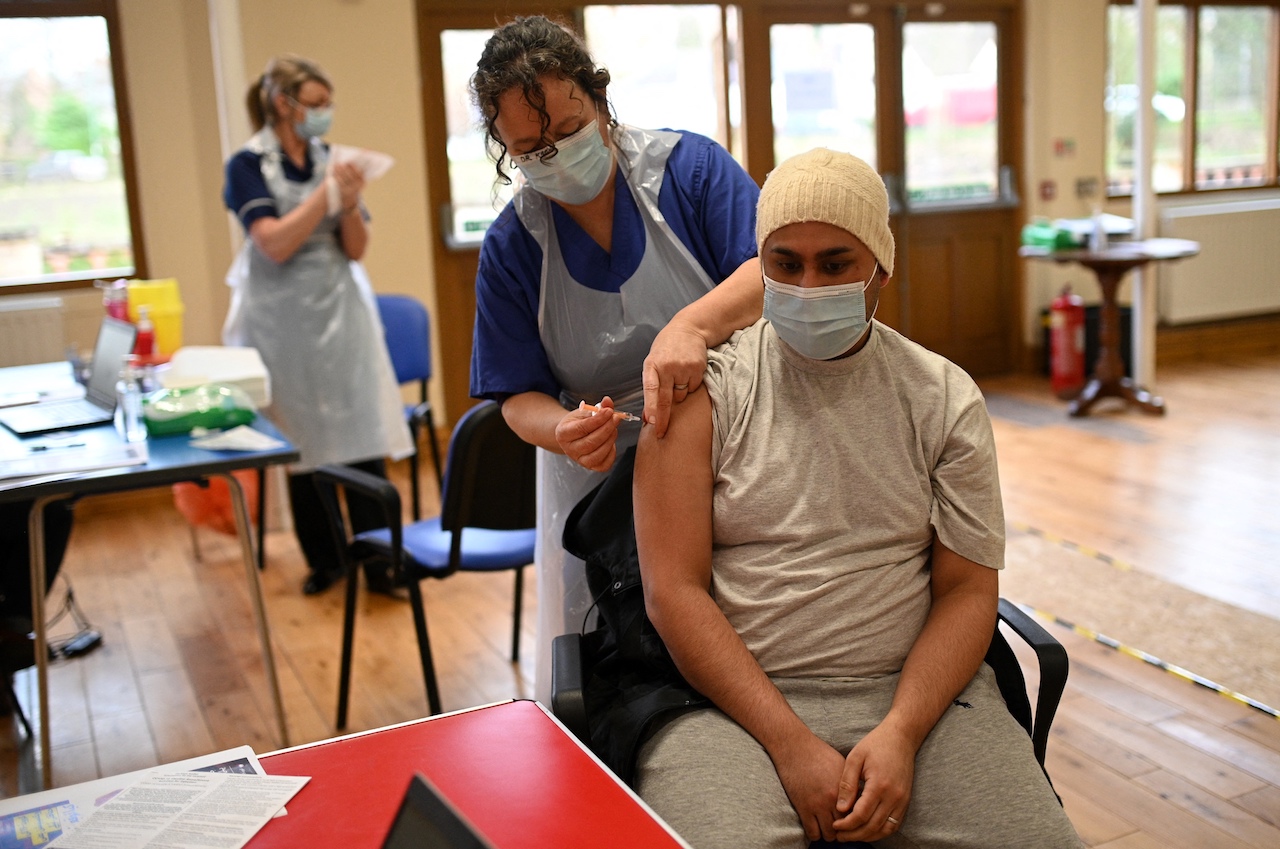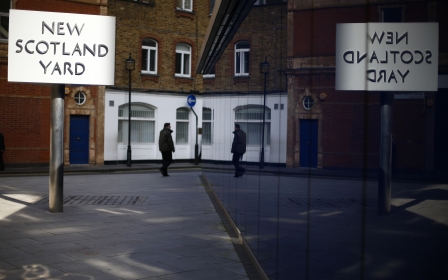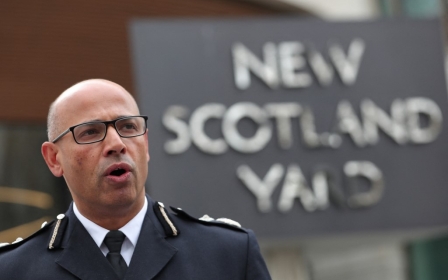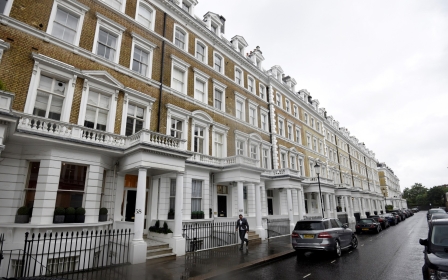Covid-19: Britain's Muslims in the eye of the pandemic storm once again
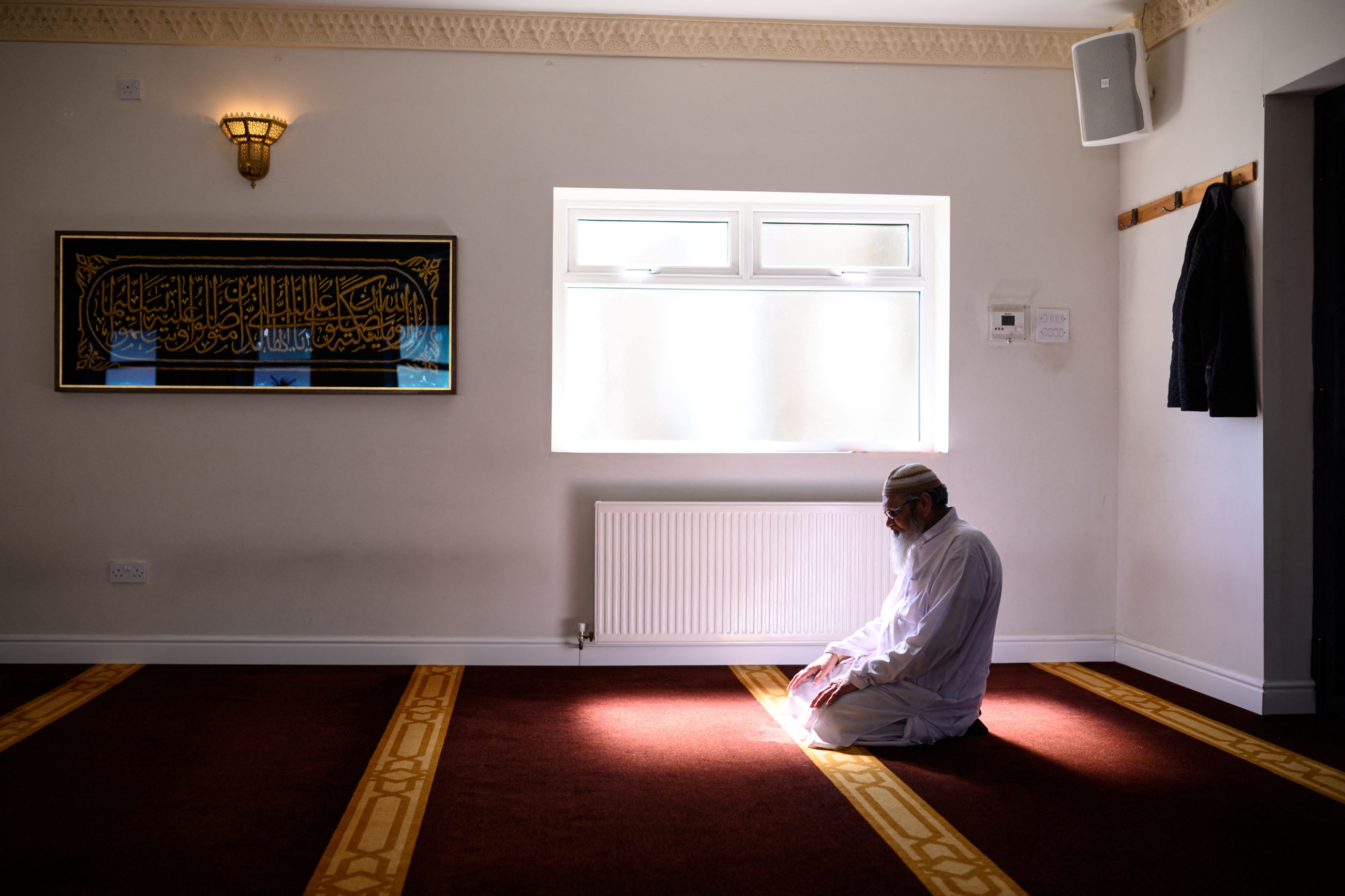
On the first day of lockdown there was a strong sense of deja vu at the Al-Manaar Mosque in west London. The team was strongly reminded of when the mosque's doors were flung open in 2017 to the survivors of the nearby Grenfell Tower fire disaster. Overnight, its elegant halls were transformed into an emergency support centre.
As with Grenfell, the Al-Manaar response was swift. On the day lockdown was announced, its team held an emergency meeting with Aid UK to deliver help to the elderly. The ornate halls would once again fill with emergency parcels.
The logistics of distributing them would prove trickier during a pandemic; volunteers needed to be checked for suitability, trained in food handling, and temperature-checked on entry.
"It was different with Grenfell, when our door was open to anyone who wanted to come in. This time we had to be very selective and careful... It was extra work and pressure to make sure you're doing the right thing," the mosque's manager, Abdurahman Sayed, told Middle East Eye.
'It was different with Grenfell, when our door was open to anyone who wanted to come in, this time we had to be very selective and careful... It was extra work and pressure to make sure you're doing the right thing'
- Abdurahman Sayed, mosque manager
For Sayed, the analogy between Grenfell and the pandemic is stark: Al-Manaar would once again be a liferaft for the poor of Kensington, the UK's most unequal borough. Like many mosques, Al-Manaar was dealt a hefty financial blow by the pandemic.
New MEE newsletter: Jerusalem Dispatch
Sign up to get the latest insights and analysis on Israel-Palestine, alongside Turkey Unpacked and other MEE newsletters
Unlike other faith institutions, it lacked cash reserves and was reliant solely on bucket donations from attendees. Despite hitting the red, its thin resources were marshalled to deliver emergency food parcels and plug the holes in a tattered welfare net. The mosque's team was stepping into the void left by the government, but was deprived of the funds to do so.
The Peace Centre, a small food bank attached to a mosque in Leicester in the East Midlands, responded with similar urgency. The mosque doors were closed, the carpets were rolled up and industrial shelving installed. Overnight, it became a food distribution centre. "We looked like a cash-and-carry at one point," Hameeda Sidat, a volunteer at the centre, told MEE.
At the peak of the first wave, the centre was delivering 5,000 meals a week, extending its coverage to the outskirts of the city to fill the gaping holes left by closures of other food banks and a struggling local council, which began to direct referrals to the centre.
"We had a lot of mental-health referrals, adult social care, postnatal care... I was very surprised," Sidat said, pausing to draw breath after reeling off the list. "It hasn't stopped. It's ongoing."
As with the Peace Centre, the East London Mosque started out as a food distribution hub, before helpers there soon found themselves responsible for a plethora of services. In addition to delivering emergency food parcels and hot meals to intensive care staff at the nearby Royal London Hospital, they set up a will-writing service and, with domestic violence on the rise, women's counselling.
To ease the strain on Muslim funeral services, they rented a temporary morgue where bodies could be stored and washed. "It is in operation today, and it's still very busy," said Khizar Mohammad, the mosque spokesperson. "It would be fair to say it's got worse."
'Like trench warfare'
The Muslim community in London suffered a disproportionate death toll during the first wave of the pandemic.
While the second wave of Covid-19 has seen a reduction in the mortality rates of people from a Black ethnic background, death rates in the Pakistani and Bangladeshi communities remain alarmingly high.
The fact that 68 percent of British Muslims are Asian and the mounting pressure on Muslim funeral services suggest that the pattern established in the first wave is being repeated.
Musharaff Hussain, an imam based in Nottingham, 200km to the north of London, had noticed a "substantial" uptick in the funerals he was officiating. "It's like trench warfare," Hussain told MEE when asked how his congregation was faring during the second wave. His daily rounds of phone calls to mosque worshippers started going unanswered.
A government-commissioned report by Public Health England (PHE) into disproportionate deaths of ethnic minorities from Covid-19 cited systemic racism as the main predictor. Despite a paucity of faith-based data, with one in three of the Black, Asian and minority ethnic population being Muslim, it can be inferred that the same ethnic disparities are responsible for deaths in the Muslim population.
The determinants of ethnic disparities in mortality rates outlined in the report - deprivation, overcrowding and occupational exposure - are true for the Muslim community.
This was no revelation to Hussain. "My congregation are frontline workers, in restaurants, shops, drivers, retail. They're right at the front of it," he said.
Put simply, British Muslims are more likely to be poor. In the event of a pandemic, this means they are more likely to die.
Government action spurred by the PHE report - routine collection of ethnicity based data, the inclusion of ethnicity as a risk factor in triaging, and more concerted efforts to translate guidance into more languages - does not address the structural determinants of inequalities outlined in it.
For Salman Waqar, spokesperson for the British Medical Islamic Association, who has been working tirelessly throughout the pandemic translating guidance and liaising with faith leaders, these measures don't go far enough.
"If it becomes a case of all we have to do is translate this poster into Punjabi, we're going down the wrong path, we won't get to the crux of the problem," he said.
Parth Patel, the co-author of a Institute for Public Policy Research think-tank report into the influence of ethnic disparities on the 2nd wave of Covid-19, told MEE: "There's this tendency to go with providing individuals with information and letting them take responsibility. It's the elephant in the room, and no one's talking about it. How can we support people to get out of a household to isolate?"
Questions over funding
Waqar and his colleagues squeezed in their vital communications work around busy ward rounds.
"We have no funding from the NHS [National Health Service] or the government. This is people putting in time after work... if they have a spare moment. Instead of being with their families, they are putting together this stuff," Waqar told MEE. "I'm not aware of any [grassroots] group that has been supported from the centre."
On 8 April, the government announced a £750m ($1bn) package to the charity sector, including a $277m Coronavirus Community Support Fund to be distributed to small charities via the National Lottery Fund.
'We have no funding from the NHS or the government. This is people putting in time after work... if they have a spare moment. Instead of being with their families, they are putting together this stuff'
- Salman Waqar, British Medical Islamic Association
On 25 January, the government announced the distribution of a further $32m to 60 councils and community groups to "expand work to support those most at risk and boost vaccine take up".
While Waqar welcomed this move, he questioned where the money was going: "It is right that money is going out locally, but what is being done and how is that money spent?"
Not one of the organisers and faith leaders MEE interviewed was able to access this money. In response to a Freedom of Information request, the Department of Culture, Media and Sport revealed that, while 8,282 "eligible charities" were awarded money, just 115 faith groups received funding.
As data regarding faith-based organisations is exempt from disclosure, precise details about these groups are unknown. The National Lottery Fund confirmed that £30.3m ($42m), or 5.6 percent of total funding, was distributed to projects supporting Asian communities. However, due to data restrictions, it could not provide information regarding faith-based recipients of the fund.
Sidat and her team at the Peace Centre applied for money and were refused. "I don't know why we don't meet the criteria. We don't get a response as to why we were unsuccessful. The applications are so intensive."
After thwarted application attempts for security funding in the wake of New Zealand's Christchurch shooting in 2017, Sayed at Al-Manaar is reluctant to put the work into another funding application.
"Even if we wanted to, the demands are too restrictive, and inhibiting. It doesn't encourage you... it doesn't recognise you.You have to compete with all sorts of people who have resources, but not necessarily the connection with the community."
Big media agencies are reported to have been contracted to boost vaccine uptake among ethnic minorities.
A further $1.6m of government money went to Strengthening Faith Institutions, an umbrella interfaith organisation dedicated to "professionalising" faith institutions.
None of the organisers interviewed for this piece had heard of the organisation or the pot of money.
Although under-resourced, the volunteers MEE spokewith recognised the important role they played in plugging the gaping holes left by local government.
"No one else could facilitate [this emergency response]... people in need knew they could phone the mosque and they knew it could be done in the next hour," Tracey Pook, a volunteer at the Didsbury Mosque, in Manchester, told MEE.
'We don't exist'
The lack of engagement and government support came as no surprise to the mosque teams interviewed by MEE. They said Prevent counterterror programme policies have cast them as "suspect communities" who are at best overlooked, at worst subject to scrutiny and hostility.
"We don't exist," Hussain said. "The government does not like and does not want to talk to the Muslim community, they regard us as dangerous... we're the fifth column."
Despite the council's heavy reliance on the work of the Peace Centre in Leicester, the group was also subjected to heavy scrutiny from the local community.
"We had people reporting us for not social distancing... We've noticed the other food banks are not getting scrutinised as much as we are," Sidat told MEE.
When asked why mosques continued to deliver aid without any financial support or recognition, Tracey Pook's answer was disarming. "It's not about money," she said. "It's because we're human, we're all human beings."
At Al-Manaar, Sayed said simply: "We look on it as our duty. At a time of crisis, like the Grenfell Tower fire, [people help out] because they play a role in harmonising and providing pastoral and essential help for the community."
Mohammad from the East London Mosque told MEE: "Ultimately our community looks to us for guidance and support. Our community are the ones that have funded us so far. Despite us hitting the red, we're committed to delivering these services."
Lack of means did not deter the mosque workers MEE spoke to. They transformed their places of worship into food hubs, referral and counselling services, morgues and vaccination centres.
Despite being pushed to the margins by disinterested authorities and a hostile media, they are keenly aware of their centrality to the fabric of their community; a global pandemic has brought this truth sharply into focus.
Middle East Eye delivers independent and unrivalled coverage and analysis of the Middle East, North Africa and beyond. To learn more about republishing this content and the associated fees, please fill out this form. More about MEE can be found here.


